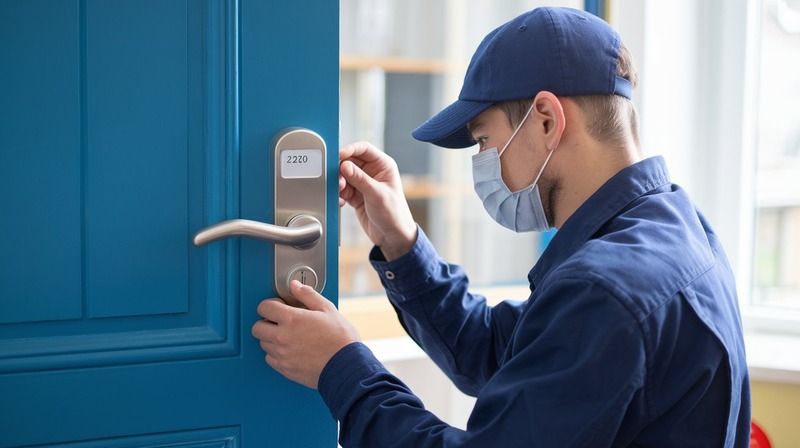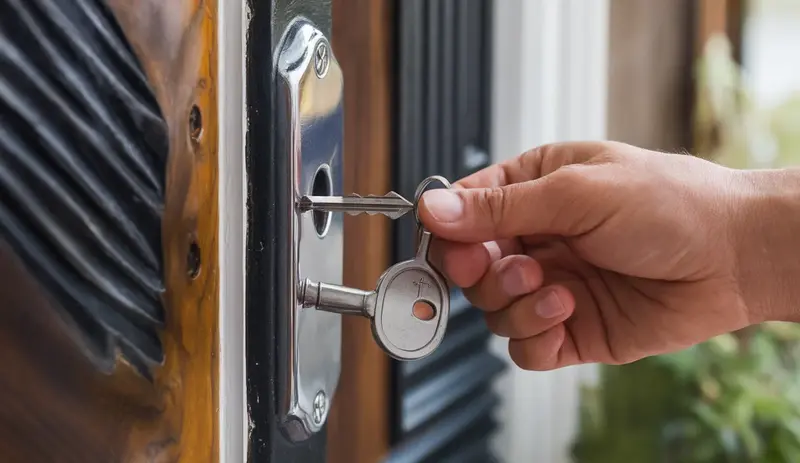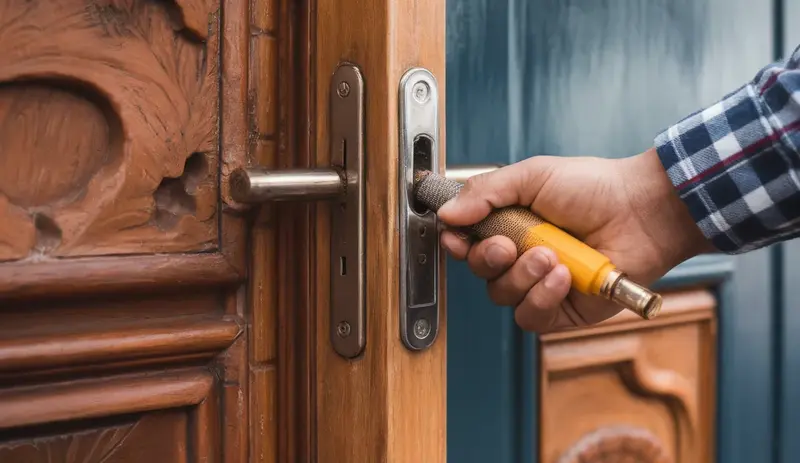
We’ve all been there-fumbling with keys, dropping groceries, desperately trying to unlock the door while your hands are completely full. What if there was a smarter way to secure your home that didn’t involve wrestling with traditional locks? Electronic locks aren’t just for tech geeks anymore-they’re becoming a game-changer for everyday homeowners.
The good news? Installing electronic locks isn’t as complicated or expensive as you might think. In this guide, we’ll break down exactly what you can expect to spend, what factors influence the price, and whether these high-tech security solutions are worth your investment.
What Exactly Are Electronic Locks? (Breaking It Down for Normal People)
Let us clear up any misconceptions about electronic locks in a way that doesn’t come off like a tech manual. At their essence, electronic locks are just more sophisticated sentinels for your door, replacing the usual metal key with something smarter. Think of them as guardians of your home’s entryway, allowing you to use your smartphone, a fingerprint, or a memorable code to get past the threshold instead of the traditional method of jamming a key into a lock.
Types of Electronic Locks
There are a number of kinds of electronic locks to select from. Keypad locks allow you to input a secret code, which is ideal for families that perpetually misplace their keys or for people who will only need to access your home for a short time. For a more high-tech option, consider a lock that connects directly to your phone via Bluetooth. These smart locks can be opened with a simple tap, or even automatically, when you’re in the vicinity of the lock. If you want to go all out on security, you can get a fingerprint-enabled lock. These models use your unique biological signature as the key.
So, why might anyone choose these high-tech lock systems? Convenience is the main attraction. You needn’t fret over misplaced keys, duplicating them for your household members, or secretively placing a spare under that super-suspicious rock right by the front door. You can even monitor who enters your domicile and at what time with smart locks and is able to do all that with an app on your phone.
Price Tags: How Much Are We Really Talking?
There is a range of prices for electronic locks that fits almost any budget. At the low end of the price spectrum—between $50 and $150—you will find keypad locks and simple Bluetooth locks. These are inexpensive and entry-level options that offer more convenience than traditional locks but that don’t necessarily offer a ton of features.
Generally, the cost of a smart lock ranges from just above $100 to around $300. At the lower end of the scale, you find models that are best described as “dumb” smart locks; prices rise for models that are fully integrated into smart home systems and that offer a suite of additional features. This integration is a key point that distinguishes between smart locks and, say, really nice digital doorbells or high-tech home security cameras.
High-end systems run between $300-$500 and are built for tech enthusiasts and security-obsessed folks. Locks in this category often have the premium features you might expect, such as advanced encryption, several access method options, and an all-but-untraceable control scheme via a comprehensive smartphone app.
Installation costs should be included in your calculations. Some people can install these themselves, but others need a pro, which can add $50 to $200 to your total investment.
You May Like: How Much Does A Car Key Replacement Cost In Greenwood Vill.?
DIY vs. Professional Installation: What’s Smarter?
Let’s get real about putting in electronic locks. If you can use simple tools and follow directions, you’ll probably save a good bit of money by installing the locks yourself. Most electronic locks have easy-to-follow directions, and most are made to fit standard door setups.
Because many homes have doors that meet these specifications, most of us should be able to install one of these locks without too much trouble. Here are some basic steps to follow when installing an electronic deadbolt.
However, not everyone can be a pro at home improvements. If the idea of taking out your old lock makes you break out in a cold sweat, hiring an expert might be your best option. Having a pro put in your new smart lock ensures that everything is lined up, wired, and functioning as it should. Check out our local locksmith services or visit our Google Maps location for professional installation.
Hidden Costs Most People Don’t Think About
Before you get too excited, consider some subscription and device costs that can sneak up on you. Battery replacements are a regular thing; most electronic locks run on batteries that need changing every 6-12 months. Integrating a smart lock into your smart home might require additional hub devices or subscriptions.
Which Electronic Lock is Right for You?
Selecting the perfect electronic lock is much like choosing the ideal pair of shoes; it’s a matter of personal preference. For the fans of smartphones, Bluetooth locks serve as the perfect electronic access device. For those looking for something with a bit more versatility, Wi-Fi enabled locks offer far greater remote access capabilities. Still, these two categories don’t account for all the different types of electronic locks available.
Locking devices that require a keypad function perfectly for the family and business setting. If you’re an individual seeking the highest level of security for your home, a fingerprint lock is your best bet. It all comes down to matching the specific type of lock to your individual situation and comfort with different technologies.
Conclusion
Electronic locks aren’t just a fancy gadget-they’re a practical investment in home security. While prices range from about $50 to $500, most homeowners will find solid options between $100-$250. The key is matching the lock to your specific needs, budget, and home setup.
Pro Tips to Save Money: Compare multiple brands, look for sales during holiday weekends, check if your home insurance offers discounts for smart security, and consider DIY installation if you’re handy. Final Thought: Your home’s security is worth the investment, but that doesn’t mean you need to empty your wallet. With some smart shopping and research, you can upgrade your home’s security without breaking the bank.


